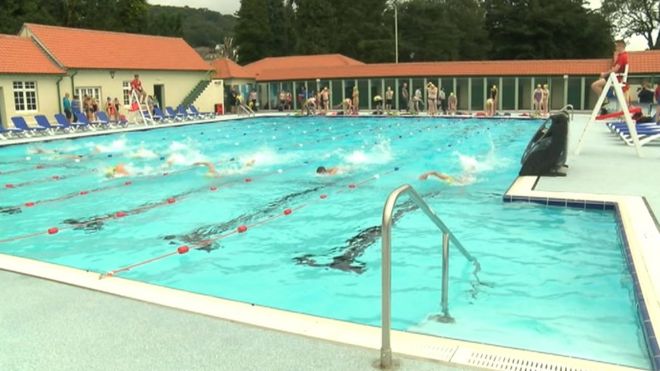The EPD was created by British phonetician Daniel Jones, who was head of the Department of Phonetics at University College London. Jones is credited with coining the term 'phoneme' in 1917, too, so it was a bit of a special year all round for the subject area. Jones had collaborated on a dictionary project prior to the EPD but, rather than listing headwords orthographically in alphabetical order, that version had listed the headwords in phonemic script first, with the spelling form following. It was not a best-seller.
 |
| Daniel Jones. Image: https://evolution9linguistics.wordpress.com/2010/01/03/dj-system-kk-system/ |
The EPD was first published by Dent, who continued to produce it until the late 1980s, when it was bought by Cambridge University Press (CUP). During the Dent years, Jones produced a further 11 editions, with A. C. Gimson stepping in as editor following Jones's death in 1967. Gimson produced two editions, the 13th as sole editor, and the 14th with the support of Susan Ramsaran, who finished the work following Gimson's death in 1985.
I first got involved with EPD in its 15th edition. I'd been doing an MA at Leeds, where Peter was based at the time, and was invited to join the team; I am listed as 'Pronunciation Associate' on the title page of EPD15. From this edition, it was decided to add American English pronunciation as well as British English, and so James Hartman was brought on board. The other exciting thing about this edition was that it was being computerized using the impressively-named 'Advanced Revelation' database software. My main work at the time was to go through all the existing pronunciations ('prons') in the database to check they were up to date and entered properly, syllabify them according to the principle of Maximal Onsets, and add new prons for words coming in from CUP after consultation with Peter and Jim; we added more than 18,000 new words at the time. What that usually entailed was me researching and suggesting both British and American prons and Peter and Jim agreeing, disagreeing or augmenting the suggestions with additional variants.
Apologies for the huge understatement, but the English language has changed rather a lot since 1917, pronunciation included. Peter was very much against using the term RP to describe the reference accent in EPD (now CEPD) as he perceived it to be outdated and associated with the upper classes. For British English, he prefers the term 'BBC English', and for American English we use 'Network English'. The idea is that these are the accents used by professional speakers on national broadcast networks in the UK and USA; these are educated speakers who could come from any demographic.
Cambridge University Press have produced an engaging video on CEPD to mark its 100th year. I love the way the narrator trills his /r/ when he pronounces 'American'!
Cambridge University Press have produced an engaging video on CEPD to mark its 100th year. I love the way the narrator trills his /r/ when he pronounces 'American'!
So, what next for CEPD?
There are no current plans to produce any further print editions of the dictionary; it is now available through the Apple and Android app stores (accessible via the video above), and CUP have told us that the way forward (as I write) is electronic editions only. However, as well as adding new words to the dictionary from time to time, there may come a point at which we will have to evaluate whether BBC or Network English are relevant anymore. John Wells, Emeritus Professor of Phonetics at UCL, has written of EPD that it 'has set the standard against which other dictionaries must inevitably be judged'. In order for that to continue, we may want to add prons for something like Standard Global English - whatever that might look like - or make changes to the current transcription systems to reflect the pronunciation of future Englishes. The phonemic system of transcription is fairly robust and forgiving, but it wasn't so long ago that we added happY and thank yOU vowels, which are non-phonemic.
There are no current plans to produce any further print editions of the dictionary; it is now available through the Apple and Android app stores (accessible via the video above), and CUP have told us that the way forward (as I write) is electronic editions only. However, as well as adding new words to the dictionary from time to time, there may come a point at which we will have to evaluate whether BBC or Network English are relevant anymore. John Wells, Emeritus Professor of Phonetics at UCL, has written of EPD that it 'has set the standard against which other dictionaries must inevitably be judged'. In order for that to continue, we may want to add prons for something like Standard Global English - whatever that might look like - or make changes to the current transcription systems to reflect the pronunciation of future Englishes. The phonemic system of transcription is fairly robust and forgiving, but it wasn't so long ago that we added happY and thank yOU vowels, which are non-phonemic.
Will we want to add glottal stops, for example?
And can the CEPD continue to be a suitable reference point when English is developing so fast around the world?
I'd be interested to hear your thoughts.

